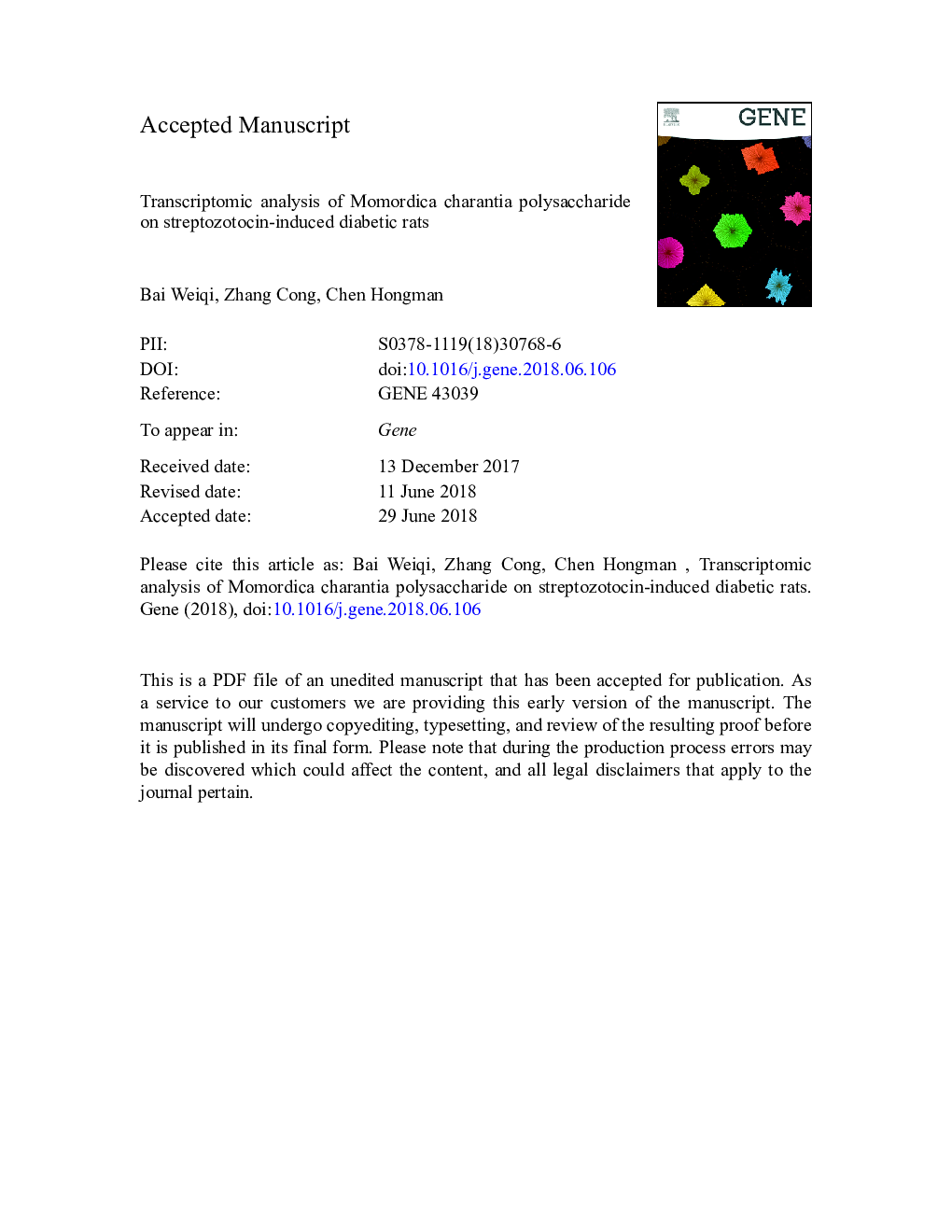| Article ID | Journal | Published Year | Pages | File Type |
|---|---|---|---|---|
| 8644502 | Gene | 2018 | 26 Pages |
Abstract
Polysaccharides obtained from Momordica charantia have been shown to exert a hypoglycemic effect, thereby improving glucose metabolism. However, little is known regarding the molecular mechanisms underlying this process. In recent years, RNA sequencing (RNA-seq) has rapidly emerged as a major transcriptome profiling system. Herein, RNA-seq was utilized to obtain whole transcriptomes from the livers of SD rats with type 2 diabetes (DM) and type 2 diabetic rats treated with M. charantia polysaccharides (DMCPIIa). In total, 44,752,508-52,585,920 uniquely mapped reads were obtained, covering 85.54% of the annotated transcripts and representing 12,857 mRNA transcripts. Following analytical analysis, 17 differentially expressed genes (pâ¯<â¯0.05, false discovery rate qâ¯<â¯0.05) were identified in the DMCPIIa group relative to the DM group. Gene ontology and pathway analysis demonstrated that 17 differently expressed genes were enriched in specific biological processes mainly relating to glucose metabolism and fat metabolism (pâ¯<â¯0.05). Furthermore, a subset of the differential genes was selected for validation via real-time quantitative reverse-transcription PCR. Collectively, the integrated analysis of differential gene expression, data obtained herein and the examination of previously reported quantitative trait loci, and genome-wide association studies has suggested that pdk4, pkl, hsd11β1, msmo1, rbp4 and fads2 may serve as promising candidates for the modulation of type 2 diabetes.
Keywords
GLPSTZHDL-CRGPD6DPEPGLAPEPCKPPART2DMRBP4G6PaseFPKMBGLPFKRNA-seqPDCPDKNGSFADS2FBGMomordica charantiaFBPaseDelta-6 desaturaseSC4MOLAUCSprague-Dawleyfatty acid desaturase 2gamma-linolenic acidstandard deviationTranscriptomeRNA sequencingNext generation sequencingKEGG یا Kyoto Encyclopedia of Genes and Genomes Kyoto Encyclopedia of Genes and GenomesType 2 diabetesType 2 diabetes mellitusBlood glucose levelsPKLfructose-1,6-bisphosphatasephosphoenol pyruvatephosphoenol pyruvate carboxykinasefasting blood glucoseGlycolytic pathwayInsulin resistancearea under the curvemapGene ontologyHyperglycemicRetinol binding protein 4pyruvate dehydrogenase complexPyruvate dehydrogenase kinasepyruvate kinasePolysaccharidehigh density lipoprotein cholesterolNormal controlglucose-6-phosphataseperoxisome proliferator-activated receptor
Related Topics
Life Sciences
Biochemistry, Genetics and Molecular Biology
Genetics
Authors
Weiqi Bai, Cong Zhang, Hongman Chen,
